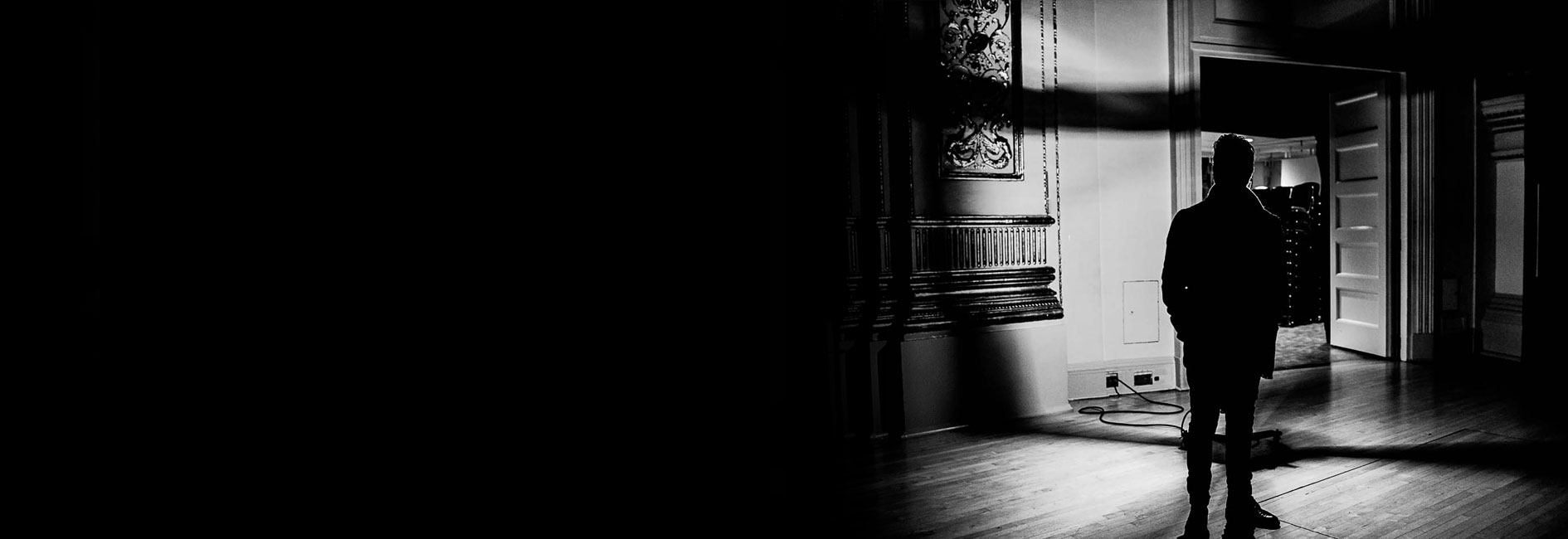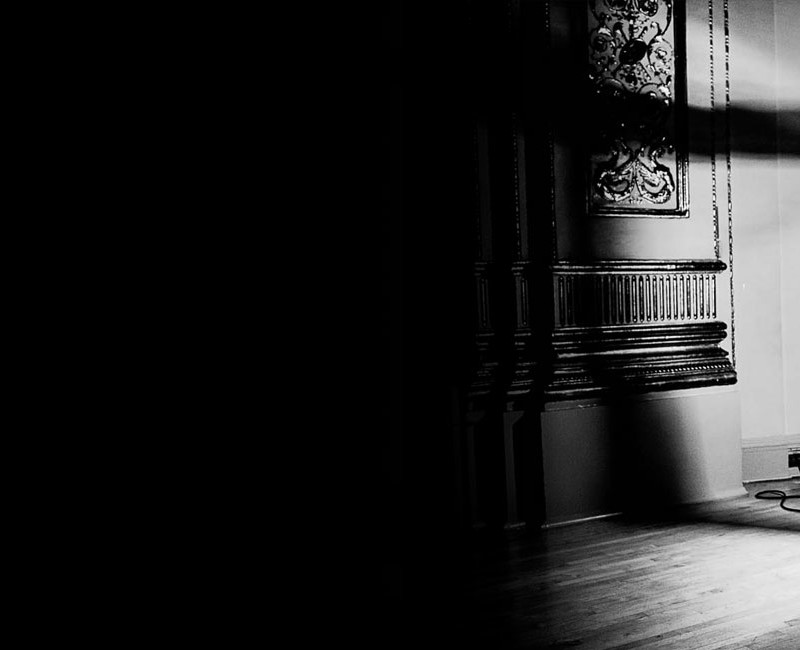Pablo Heras-Casado: “The Flying Andalusian”
17 Jan 2012
His name is Pablo Heras-Casado (34, Granada, Spain) and, like Wagner`s Flying Dutchman, wherever he arrives he unleashes a musical tsunami. Next Saturday Jan. 14, the New World Symphony will present this undoubtedly new star in what could be the most remarkable debut of the season. Charming, unpretentious and sunny, the multitalented young conductor definitely is more “Flying Andalusian” than Wagner’s tortured character. I spoke with Heras-Casado about this special moment in his life, on the heels of his breakthrough debut with the Berlin Philarmonic and his appointment as principal conductor of New York’s Orchestra of St. Luke’s.
May we call you “The Flying Andalusian”?
Absolutely. In seven months, I haven’t stayed more than five days in one place, and sometimes I have to grapple with, let’s say, fantastical creatures…
Does your meteoric rise make you dizzy or do you feel like a surfer riding a wave?
I don’t surf, but I guess that’s the way it must feel up there. On the other hand, it’s what I always wanted – and in more than one sense, created. You have to be willing to be up there. I could have had an easier life, playing a more usual repertoire, but it’s in me to take risks. It doesn’t bother or frighten me. On the other hand, I’ve been conducting half of my life, and I see that as a natural progression. It’s been seventeen years of nonstops work.
You started out singing…
Yes, as a boy soprano at the age of 8. I later sang tenor, bass and countertenor in the early music group I founded, and had to dissolve when this constant traveling started.
What did early music do for you?
It taught me that polyphony is the ABC of music. It’s all there, from phrasing to harmony, even in the music prior to Palestrina, the French and Spanish music, earlier than Flecha and Del Encina, harking back to the discovery of the New World.
In your astonishing command of range and flexibility, I am reminded of the great Erich Kleiber’s motto: The worst enemies of art are routine and improvisation.
Great line! When I started out in Granada, the first thing I was told was that I was doing “too much,” and later – an expression I hate – that I was “lucky.” I agree with what Picasso said about the muse of inspiration: “It happens that every time the muse comes to me… she catches me working.” She comes when you are ready, and that’s all there is to it. It’s a challenge to do so much and of such diversity. I have to study intensely and constantly to keep the repertoire in shape and to stick to a 500-year musical diet. For instance, in the past seven weeks I performed seven different programs, considering I was doing seventy percent of the repertoire for the first time.
What, then, looking at “musical tradition” would be “the good” and “the bad”?
Traditions transmit universal values, not local or capricious ones. They have been gradually purified. You need to run them through the sieve of common sense. The good ones give enduring values. The bad ones tie us down to specific periods and their supposed values. I’m talking about the mistake of “we do it this way because we have done it this way for the past thirty years.” We cannot – nor should we try to – make someone sing as in the thirties because even theaters and orchestras are different now.
Are you a fighter against the current specialization, or does everything spring from the same place?
It’s not just a matter of studying a musical score, but of knowing the fundamentals of each language, the historical context of each musical culture. And from there, achieving what is now called call “cross-learning,” focused and with ramifications in every direction, while asking oneself where each language and composer is going. When at the end everything comes together, it becomes obvious that everything is part of the same thing, of a universal creative impulse. That is why there’s no effort involved, why it feels so natural to go from Bach to Schoenberg.
How do you handle the current media explosion?
The explosion of the media makes for incredible speed. Everything happens instantly, and it’s fantastic. It has global dimensions, and in music we have to be conscious of the fact that we are able to broadcast globally, something that does not take away depth, but rather imposes greater demands. You have to be prepared to communicate socially because you are embracing more people. The phenomenon is not new. Verdi was concerned about the media of his time and so, of course, was Karajan.
Incidentally, you just made your debut with the Berlin Philarmonic, once “Karajan´s Orchestra”
Is an orchestra marked by obsession and passion, and a combination of both in its desire to give its all and play well. It doesn’t just sit back on its throne. At every rehearsal, it starts anew, with the same enthusiasm as always. It possesses a culture of music, of sharing and creating together, and a very strong personality. When I was 10, I discovered it by way of a recording of Karajan conducting Mozart’s Requiem, but I was never conscious of the great conductors and orchestras, nor did I want to be a conductor because of the models, but because of the music itself.
Are today’s orchestras different from those of the past?
They have undergone normal development because society is not the same as it was. The relationship between bosses and workers has changed; it’s more open. In Toscanini’s and Furtwangler‘s time the large 19th century orchestra was decades old, very young. It evolved; it improved as a structure and human group, and in terms of sound too. Today, the relationship between a conductor and his orchestra is more organic, more akin to life.
Do you like rehearsing or prefer the final product?
It depends on the orchestra. Some orchestras feel they know everything and get tired of rehearsing, only to later transform themselves at the concert. Others prefer to make adjustments from the beginning. Let’s say that some women are beautiful when they do themselves up, and others draw everyone’s eyes just by making an entrance.
Some musicians react to you with an attitude of “what’s this kid going to teach us?”
I’m young, and I’ve come to terms with that; the demands on me are greater. If you approach a piece with a fresh outlook, most musicians are very receptive. They like and accept a challenge if it comes from humility and sincerity. They don’t want routine or comfort. Also, orchestras have a sixth sense.
You are a known as a wizard at programming concerts, a crucial secret ingredient of success.
It ‘s a difficult and exciting task, not as important for others as it is for me, because I see programs and formulas repeated ad nauseam. It’s a matter of taking risks, like using a large palette of colors and materials. Handling many techniques gives you a spatial and coloristic vision when you have to mix things. I can find the historical thread – the least interesting choice to me – or just combine pieces – much more interesting – as in an abstract painting: optimizing balance, values, harmonies, proportions, dimensions… in such a way that what is hard to understand on paper works in the hall. People leave the theatre with a fantastic experience.
Could you provide an example?
In Berlin we started out with Mendelssohn ‘s The Hebrides , followed it with Szymanoswki and Berio and ended with Mendelssohn’s Symphony No. 3 [The Scottish Symphony]. There was no apparent thematic connection, only a succession of good music. Here in Holland, I combined Stravinsky‘s Symphonies for Wood Instruments, Shostakovich‘s Chamber Symphony and Beethoven’s Fifth. The first obviously involves a large group of woodwinds; the second, strings; and the third, the two. The two 19th century pieces have contrasting esthetics and in them death is a distant or constant presence. Stravinsky composed his symphony as an epitaph for Debussy. It’s funereal, confessional and universal, more than religious, and Shostakovich composed his in the midst of a major crisis, on the verge of suicide. In the Fifth, as in the others, and despite its triumphal ending, fate is the basic tragic element.
The program you will be conducting on Miami Beach could startle sectors of the audience…
I designed and proposed it and it was accepted by the New World Symphony. It includes vivid, contrasting and very different pieces and I love that. For example, from Claude Vivier we’ll have a lullaby for an orphaned child, whereas from Ligeti we’ll feature a theatrical moment based on Le Grande Macabre, where a tragic idea underlies a hilarious, sarcastic and absurd perspective. It’s brilliant music.
You have conducted, among others, outstanding versions of Iphigenia and Mahagonny. Do you have other operas in mind?
I love opera, and I will conduct Monteverdi’s Orfeo very soon. I’m also thinking of Idomeneo, Don Giovanni, Otello, Macbeth, Don Carlo, Pelleas, Lady Macbeth of Mtsensk, Lulu, Wozzeck and, of course, Wagner’s Ring. My list is interminable.
The venerable Pierre Boulez awarded you the big prize at the Lucerne Festival.
I am fortunate to have crosed paths with him, someone who is always willing to help me. He has invited me to direct the Festival Academy next summer. He’s admirable. Just think, even now he continues to study and conducts works by composers sixty years younger than he is.
How do you educate an audience?
You have to be aware that it’s there and want to communicate with it, presenting it with options in the best way possible, as if it were an art exhibit. Taking the same approach is the main point of departure, with programs that don’t repeat themselves and music with which it is not acquainted. There’s a tendency to underestimate the public, but – contrary to what many believe – the public is eager to learn new things.
You were just named new principal conductor of the Orchestra of St. Luke’s.
It’s a fantastic opportunity. It’s the first time I get to get to be the principal conductor of an international orchestra. For the next four years, I will be part of New York’s artistic life, at the head of a fabulous and versatile orchestra that bears an extremely high quality seal.
What are you most proud of?
Of feeling the same as when I started, as a person and as a musician, with the same enthusiasm, strengths and insecurities to try to improve what needs improvement, even though I now have more experience. And of my family. I have a father, mother and sister, modest, hard-working people who passed on to me the most solid and simple values and gave me much, much love. Every chance I get, I go to Granada; it’s my emotional center. I will travel twenty hours just to spend little time there and see the Alhambra from my house, drinking anisette with them and my friends, doing absolutely…nothing.
© Sebastian Spreng

